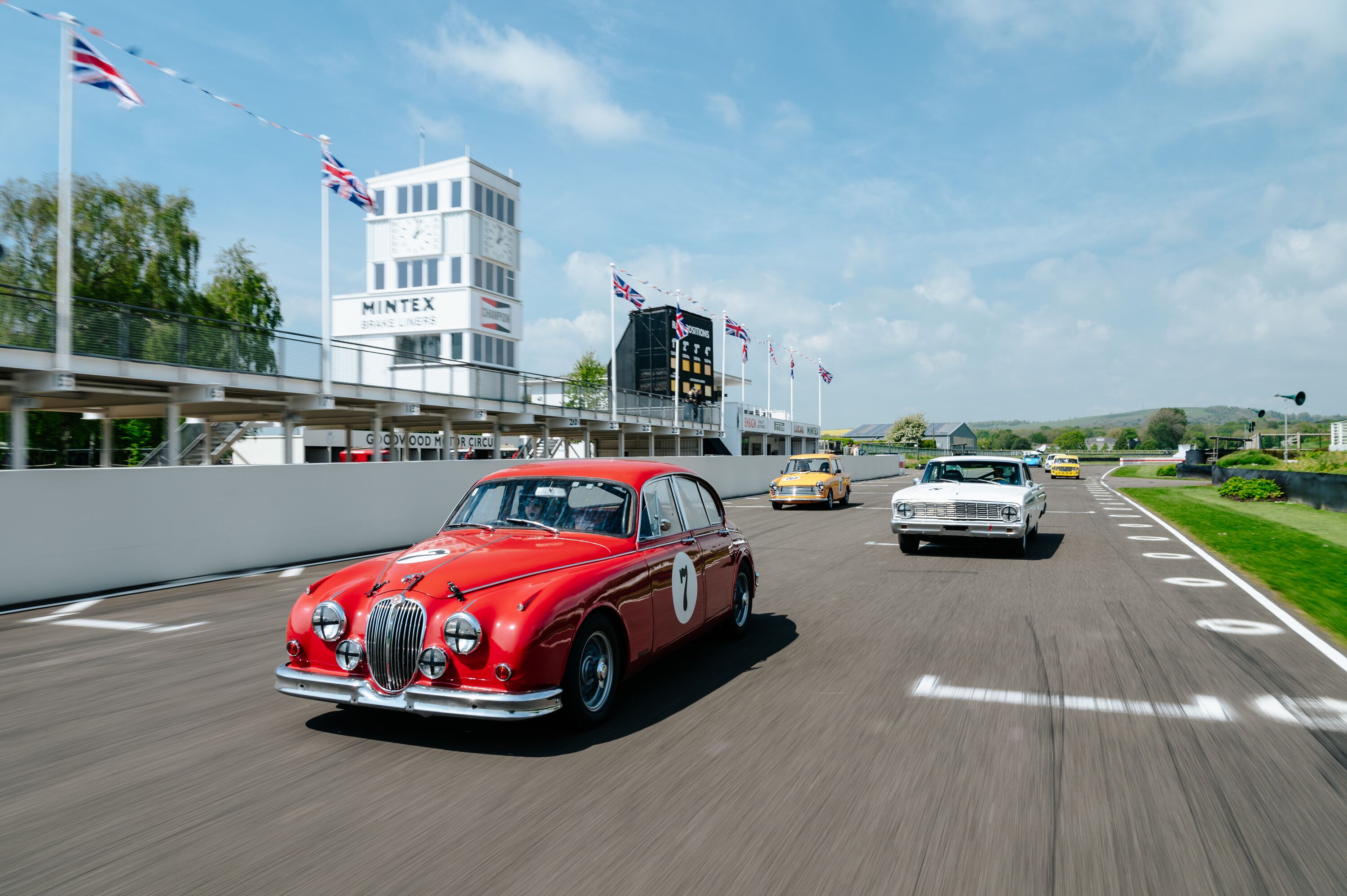The car we named a Goodwood beer after
Citrusy and hoppy is how many describe the Goodwood Brewery’s own ‘Lucky Leap’ APA. The American-style Pale Ale brewed within walking distance of our office takes its name from the unlikely but spectacular story of Masten Gregory’s ill-fated run in the 1959 Goodwood Tourist Trophy, in a Tojeiro-Jaguar sportscar. Yes, this Tojeiro-Jaguar seen racing at the 79th Members’ Meeting presented by Audrain Motorsport in the Salvadori Cup and indeed at the Revival.

Race-ready, and on evidence of its Revival performance, highly competitive, it was in much better shape here at Goodwood in 2021 than it was come the end of the TT in 1959. So the story goes and so indeed, the label on our beer indicates, Masten’s 1959 Goodwood TT came to a dramatic end when he lept – or hopped – clear of his runaway Tojeiro, to relative safety, as the car mangled itself into the bank at Woodcote. As reported in period by Motorsport Magazine “the car cocked its tail up and caught fire, Gregory being extremely lucky not to have been trapped in the cockpit. His injuries were not serious”.
It was speculated in that same piece that there could have been steering issues with his Ecurie Ecosse-prepared machine. The reality of the event, owner and racer James Cottingham estimates, was brake failure of some kind. Seeing ‘Lucky Leap’ on the entry list and knowing the short-hand tale of the 1959 Goodwood TT, we wondered what the whole story of the Tojeiro-Jaguar is, before the accident and indeed after. James Cottingham of DK Engineering kindly spoke to us about this intriguing and storied one-off and its largely untapped potential.
“That is the end of its contemporary career, exactly,” Cottingham says grinning, regarding the Tojeiro’s famous accident.
“It’s a car that came about by circumstance. Jaguar had withdrawn from international racing and handed over the D-Type to Ecurie Ecosse. They had some left-over spares and thought they’d make something else. John Tojeiro was an amazing chassis designer, who made this one-off frame for Ecurie Ecosse, to which they fitted D-Type running gear.”
Of course, with the story of Gregory’s famous incident looming large over it and driver’s experiences with the car since, quite the reputation has precipitated around this diminutive sports prototype. Cottingham firmly believes this is a car that never quite got its chance to shine, both in contemporary competition and with subsequent historic racer owners, at least until now.
“There’s a really famous poster at the start of Le Mans in 1959, with this right up the sharp end. It had a lot of potential that was never quite realised because it was a B project, a one-off. The ex-works D-Types had so much put into them by comparison. Fast forward to the TT in ‘59 and it just probably didn’t have the development it needed, and obviously, Masten had the accident.
“Since then, in the ‘60s, ‘70s and ‘80s it was always a car that had potential, but that would cost more than it was worth. As historic racing kicked off in the ‘80s, with ‘50s racers being the kick-off of that, it got to a point where it was worthwhile doing it. It’s always been unclear to the direction they went but we think for the first go at restoring it the chassis was never really sorted properly. With 3D scanning, we worked out that the DeDion rear end had been set up unsuccessfully to negate the effects of the chassis being 20mm shorter still on one side.
“Everyone over the years has always known about its fierce reputation – Gregor Fisken told me it’s the scariest car he’s ever raced – but we’ve finally gotten it sorted and to a position where it’s competitive. We won the Sussex Trophy at the Revival in 2021, which was just magic. It’s always been a combination of preparation and driver approach. For a long time, I was overdriving it but I’ve learned to treat it with a bit more respect. It’s very narrow and very low. It’s very fast in a straight line but the narrow rear end means it’s easy to lose traction and turn it into a slidey, wheely showboat. The braking is very touchy – it’s easy to lock the rears. The one time you brake late, you lock it. So it’s about carrying the speed and respecting the car and making the most of its attributes.”
Being a one-off and with the famous story attached to it, a number of people know it, recognise it, have driven it and have stories with it. It’s that unique personality and relatability to the historic racing community that Cottingham also enjoys about this Tojeiro.
“Everyone has a story with the car and everyone knows it, be it from the Revival or Members’ Meeting, or the story of the accident. We’re still in touch with the Tojeiro family who are still very interested to see it and often do at the Goodwood events. This car has that real attachment, a family heritage story. I love that. Of course, the Ecurie Ecosse story too is magic and this is from closer to the end of that story. It’s the only Ecosse car that Scotland’s greatest driver Jim Clark drove. A hero of mine that I have a huge amount of respect for so that makes it very special too. That it’s survived, done what it’s done and got to where we are with it today is amazing.”
It took the best part of 60 years but this one-off hot rod of a sportscar has really found its form. In the Salvadori Cup Cottingham fought from the back through the pack to a highly respectable third, just four seconds off the winning Lister ‘Knobbly’. The scars from that legendary TT crash are healed and with a driver that knows its idiosyncrasies, it’s fighting at the front where it belongs, no luck required.
Photography by Peter Summers and James Lynch
Tojeiro
Masten Gregory
James Cottingham
78MM
Members Meeting
















